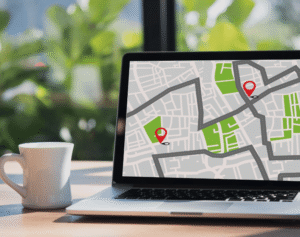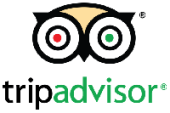From Local Landmarks To Global Rankings: A Travel Agency’s SEO Roadmap
A strong online presence is essential for staying competitive and attracting customers. As more people rely on search engines to find services, SEO (Search Engine Optimization) has become a crucial component of any travel agency’s marketing strategy. By optimizing your website for search engines, you can enhance your agency’s visibility both locally and globally, driving more traffic to your site and converting that traffic into bookings.
To create a robust online presence, travel agencies must focus on both local and global SEO strategies. This guide provides a roadmap that will help your agency improve its search engine rankings through a combination of localized optimization and broader, international tactics.
Optimize Your Google Business Profile
One of the first steps to improving local SEO is to claim and optimize your Google Business Profile (GBP). This free tool allows you to showcase your business in Google search results and Google Maps, which is especially valuable for travel agencies looking to attract local customers.
Ensure that all your business details—name, address, phone number, website URL, and hours—are accurate and consistent. Inconsistent NAP (Name, Address, Phone Number) information can confuse search engines and hurt your rankings. Adding high-quality photos of your agency, staff, and featured destinations is also important, as visuals improve engagement and help your profile stand out.
Customer reviews are another key component of Google Business Profile optimization. Encourage clients to leave reviews, as positive feedback can increase trust and enhance your agency’s reputation. Responding to reviews, both positive and negative, also demonstrates that you value customer feedback and can further build your online presence.
Create Targeted Service Pages
Service pages are a critical component of any travel agency’s website. They allow you to showcase the specific services you offer, such as guided tours, luxury vacations, or adventure trips. These pages should be optimized with relevant keywords, clear descriptions, and engaging content that explains the benefits of each service.
Each service page should target a specific keyword or phrase to ensure that it ranks for relevant searches. For instance, if you offer guided tours in Rome, create a dedicated page about that service with keywords like “Rome guided tours” or “private Rome tours.”
Additionally, be sure to include valuable information that your visitors may be looking for, such as pricing, itineraries, and customer testimonials. Engaging content that addresses user needs will encourage visitors to stay longer on your site, reducing bounce rates and increasing the likelihood of conversions.
Focus On Local SEO
For travel agencies that primarily serve a local area, local SEO is especially important. Local SEO ensures that your agency appears in local search results when potential customers are looking for services nearby. This includes optimizing your website for location-based keywords like “travel agency in [Your City]” or “vacation packages near me.”
Creating location-specific landing pages can also help improve your local SEO. These pages should highlight services offered in different regions or destinations. For example, if you offer travel packages to both Paris and Rome, create separate landing pages for each city to target tourists searching for specific locations. Include relevant local information, such as popular attractions, accommodations, and activities, to ensure these pages are valuable to potential customers.
Building local partnerships can further strengthen your local SEO. Partnering with nearby hotels, tourism boards, and other businesses can help you gain backlinks and improve your site’s authority. Additionally, participating in local events or sponsoring activities in your community can help increase brand visibility and improve local rankings.
Build Quality Backlinks
Backlinks remain one of the most powerful SEO ranking factors. When other reputable websites link to your agency’s site, it signals to search engines that your content is trustworthy and valuable. The more high-quality backlinks you have, the more likely you are to rank higher in search results.
One effective way to build backlinks is through guest blogging. Write informative, high-quality articles for reputable travel blogs or industry websites, and include a link back to your site. Participating in online travel forums, collaborating with influencers, and offering valuable resources, such as destination guides, can also help you earn backlinks.
Additionally, submitting your website to trusted travel directories and listing your agency in local business directories will further improve your backlink profile.
Track Performance And Adapt
SEO is not a one-time task; it requires continuous monitoring and refinement. Use tools like Google Analytics and Google Search Console to track your website’s performance, including organic traffic, bounce rates, and conversion rates. This data will help you understand which pages and keywords are performing well and which areas need improvement.
Regularly assess your SEO strategy to ensure it aligns with the latest trends and algorithm updates. Stay informed about changes in search engine algorithms, such as Google’s Core Web Vitals, and adapt your approach to stay competitive.
Conclusion
Successfully implementing SEO strategies is essential for travel agencies aiming to enhance their online presence and attract customers from around the world. By focusing on optimizing your Google Business Profile, conducting thorough keyword research, creating service-specific pages, and improving local SEO, you can enhance your rankings and visibility. Additionally, prioritizing mobile optimization, building quality backlinks, and continuously tracking your performance will ensure long-term SEO success.
With the right roadmap in place, your travel agency can increase visibility, build trust, and attract more customers—moving from local landmarks to global rankings and establishing your brand as a leader in the travel industry.




















